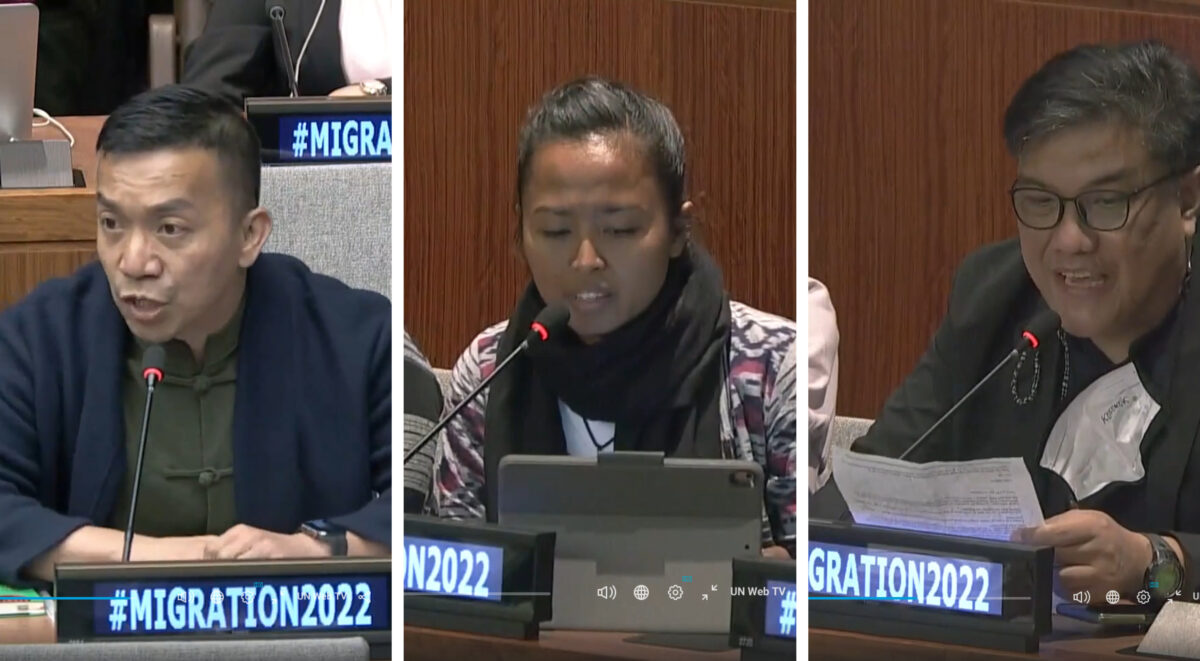
Illustration: Screenshots from UN WebTV
Intervention by Eni Lestari – International Migrants Alliance
“Nothing about migrants without the direct participation of grassroot migrants”.
That was my message when I spoke representing migrants at the opening ceremony of the UN summit on Migrants and Refugees in September 2016.
I was very happy and thoughts that many speakers in today’s hearing, echoing this message. And so, I am here, a woman migrant worker speaking up for the participation of grassroot migrants in the GCM (Global Compact on Migration) process to be effective and meaningful. We simply need to make it happen.
When the migrants are aware of the GCM, they express interest to learn more and participate because this is one way to change their condition. But our participation is faced with many challenges: language barriers, financial limitations, digital divide, lack of support to compensate and empower the grassroot.
Click to view video of Eni from the UN. Her speech begins at the 1:22:56 mark.
How can the millions of migrants be part in the follow up and monitoring of the GCM, if these challenges are not being addressed?
But beyond the GCM, migrants continue to experience harsh working and living condition, social exclusion, racism and discrimination, criminal neglect, wherever we may be.
This even multiplied during the COVID-19 pandemic. We want to raise this problem to the host and home government through the GCM implementation, but there is no clear mechanism in place for us to engage.
Because of this, meaningful participation of migrants is threatened and our issues are buried. The process leading to IMRF is unclear and untransparent. This left me with a big question in my head: How will GCM be able to address the human rights violations that we confront on the ground if the very consultation of the IMRF does not accommodate and prioritize grassroots migrants?
We are the one who are losing our jobs. We are the one getting criminalized arrest and detain. We are the one excluded from labor and social policies. We are the one whose survival is at stake.
And yet we are the one relegated to the sideline.
We speak migrant workers language, and I think you can all understand us. I hope there will be significant changes to ensure more participation of grassroot migrants on the GCM processes – from national to the global. Not only in the future, but now. Thank you very much.
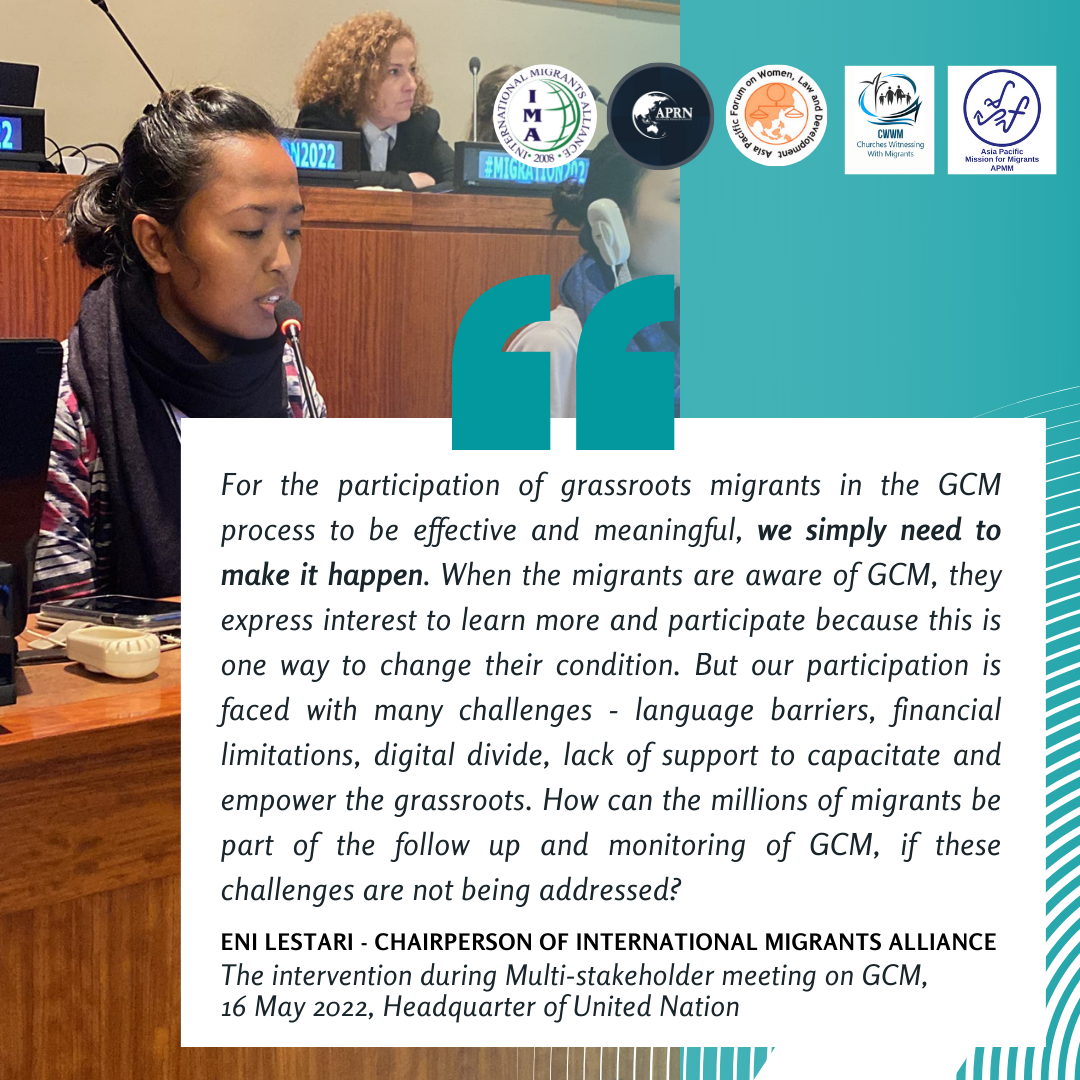
Intervention by Rey Asis – Asia Pacific Mission for Migrants
I am pleased to be invited to this Forum, and I am happy to be with migrants who have come all the way from Asia Pacific, where we also have migrant workers, marriage migrants, domestic workers who are joining us in this forum from today. And I do hope — not only in during this multi stakeholder hearing, but all throughout the international migration review forum– we provide them with a space to speak, to engage in the conversation, but also they become part of the overall monitoring, review and implementation of the Global Compact for Safe, Orderly and Regular Migration.
They are the experts on the human rights of migrants. They can tell us if the policies are working for them or against them.
They can tell us if they are part of the labor force, if their rights are protected, if their situation in detention centers are good or bad.
Click to view video of Rey from the UN. His speech begins at the 2:50:24 mark.
We just finished the “Grassroots Migrants and Refugees Forum” yesterday and we had undocumented migrants, climate migrants, domestic workers, refugees, asylum seekers who wanted to speak – but there were so little opportunity for them to be part of this process.
I do hope that this IMRF becomes an opportunity for a lot of us here in this room, as well as for members of state, to create that process to further address the issue of shrinking space. But also to provide more finances and support so that migrants themselves can be part of this process.
They are experts, not only us who are here. Let us listen to them and let us talk with them in addressing the problems and challenges of international migration.
Thank you.
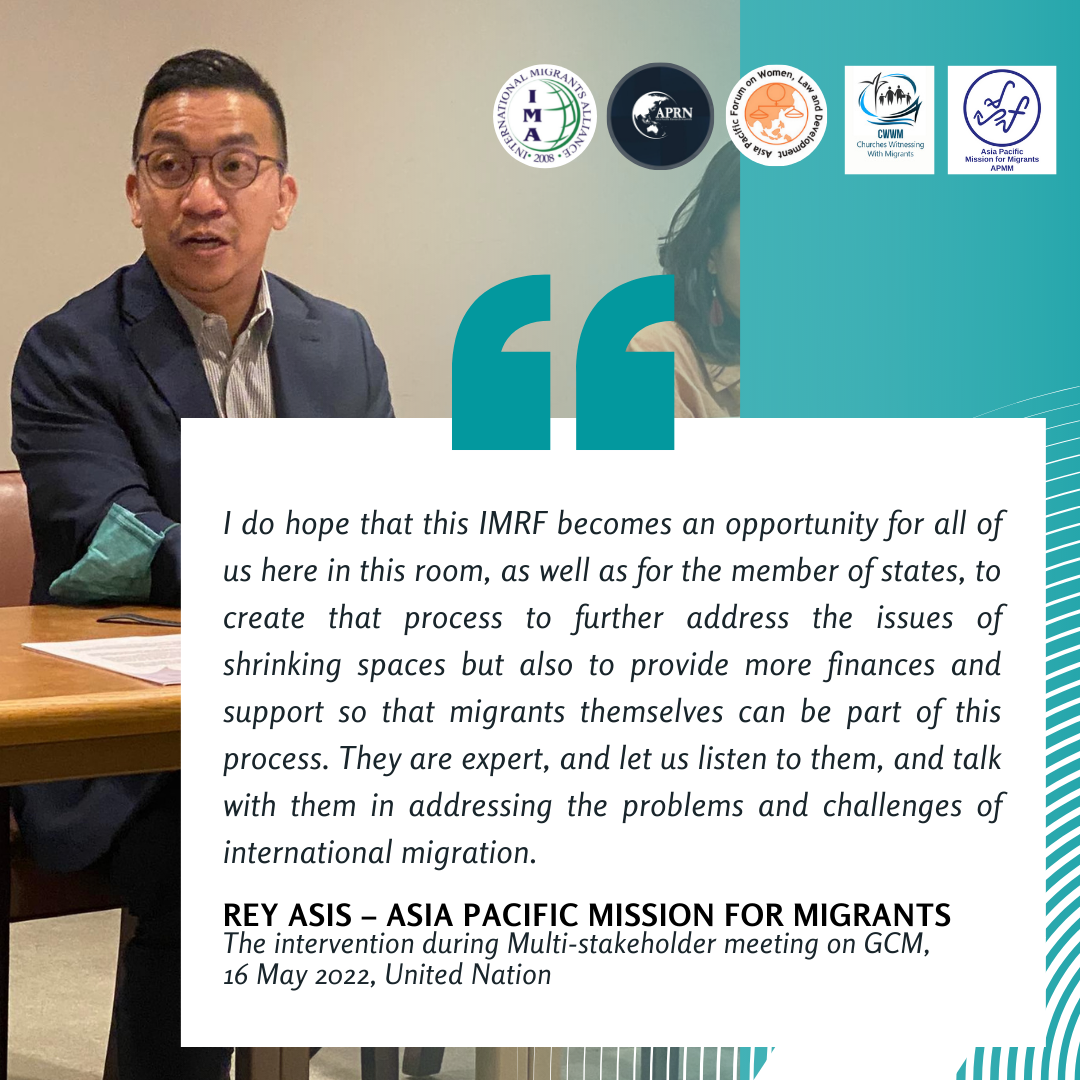
Intervention by Mervin Toquero – Churches Witnessing with Migrants
The National Council of Churches in the Philippines, along with Migrante International, is the Secretariat of the “Church’s Witnessing with Migrants” – an international platform for advocacy composed of grassroots migrants, migrants serving organizations, and faith-based bodies.
I would like to underscore and echo the call that nothing about migrants without migrants. Their presence is a must and should never be second guessed.
The IMRF should allow a significant number of migrants in deliberations and discussions, receive more spotlight reports from grassroots migrants, and closely monitored (monitor instead of monitored) the realities on the ground from the perspective of migrants.
Click to view video of Mervin from the UN. His speech begins at the 1:50:54 mark.
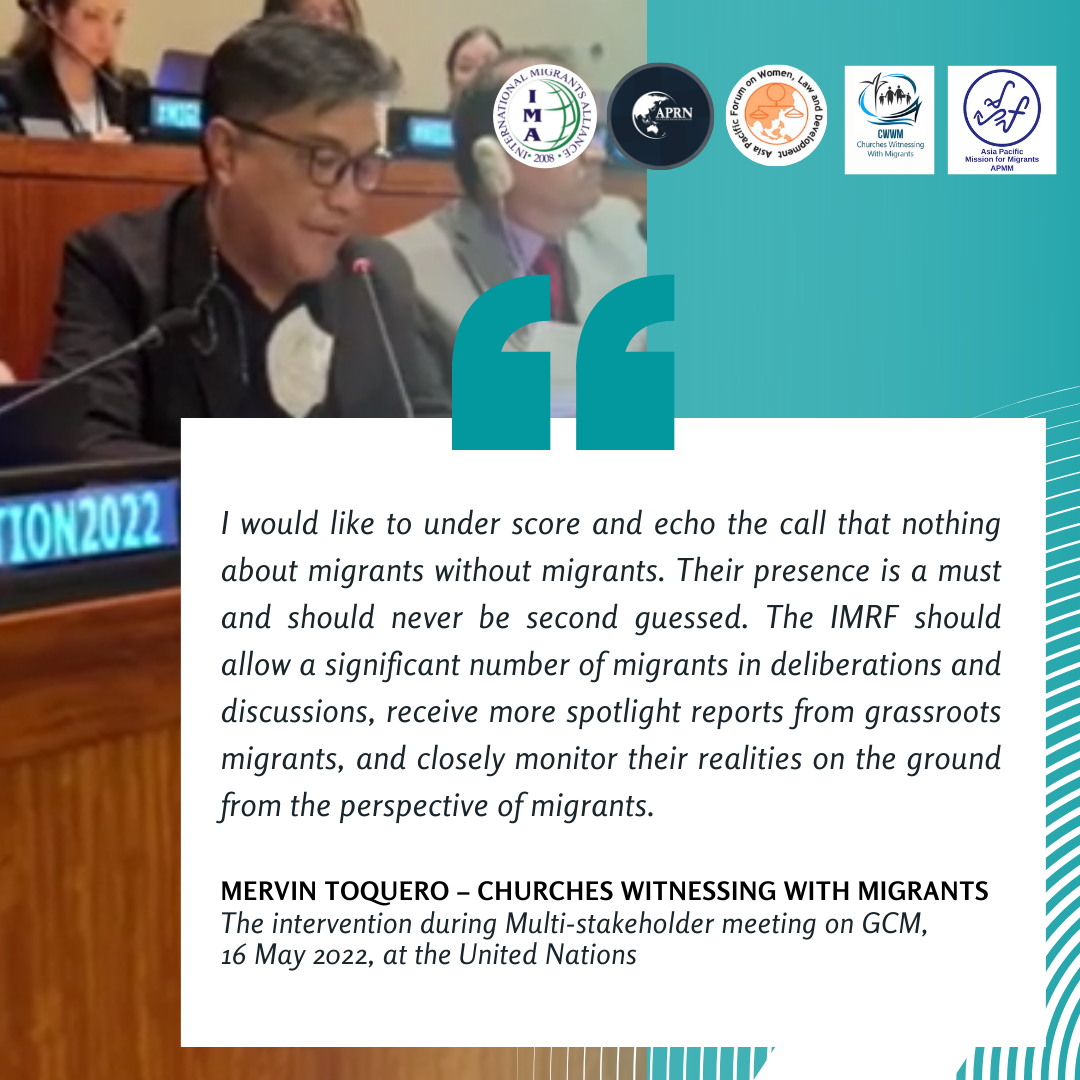
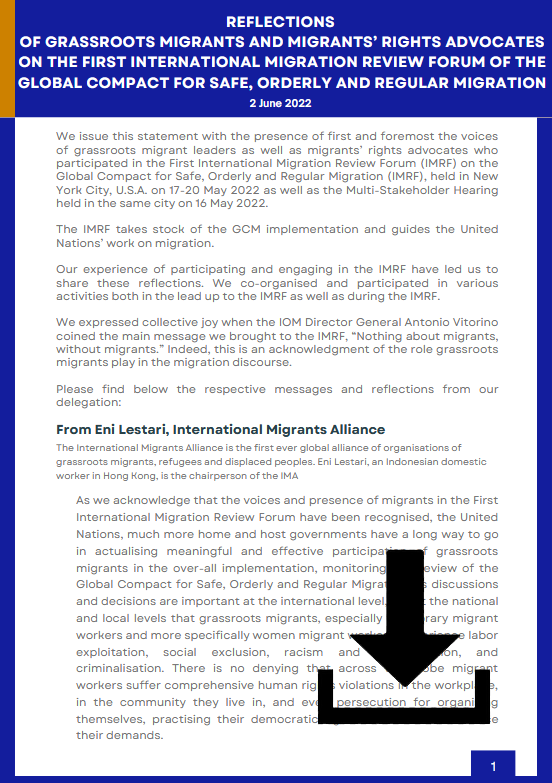
Reflections following the IMRF
You can read Eni, Rey, and Mervin’s reflections (alongside several other civil society members’ reflections) immediately following their efforts in New York here.
